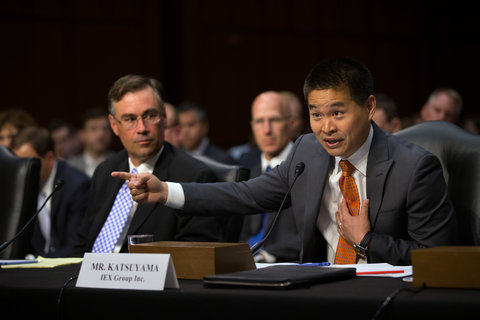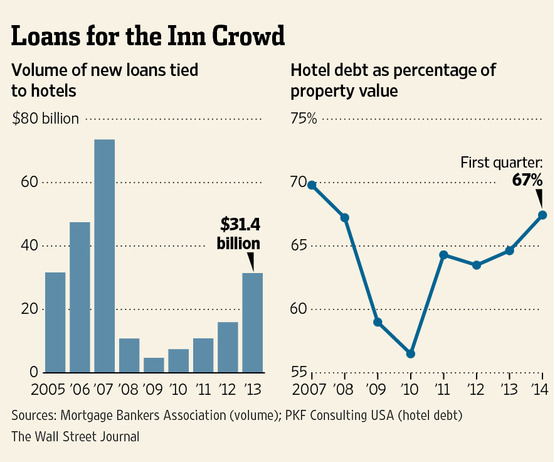BrokerDealer.com/blog update courtesy of extracts from today’s NYT DealBook
WASHINGTON – Bradley Katsuyama, chief executive of the stock trading upstart IEX Group, made waves on Wall Street by playing the part of a disruptive innovator who said he believed the markets were “rigged.”
But he adopted a softer tone on Tuesday in testimony prepared fora hearing before the Senate Permanent Subcommittee on Investigations. Mr. Katsuyama, who rocketed to prominence afterbeing featured in Michael Lewis’s recent book “Flash Boys,” voiced more measured criticisms of the market and defended the regulatory status quo.

Bradley Katsuyama, chief of IEX Group, at a Senate hearing on high-speed trading. (Doug Mills/The New York Times)
“We want to emphasize the point that IEX was created within the current regulatory framework, which shows that the spirit of the rules governing our market allow for different types of solutions to emerge if participants are properly incentivized to create them,” Mr. Katsuyama said in the prepared remarks.
The testimony showed a different side of Mr. Katsuyama, who had accompanied Mr. Lewis on a media tour surrounding the publication of “Flash Boys” in March.
In one appearance on CNBC, Mr. Katsuyama addressed the president of the BATS Global Markets exchange company, William O’Brien, and said: “I believe the markets are rigged. I also think you’re part of the rigging.”
With the book tour over, Mr. Katsuyama is trying to gain legitimacy for IEX by registering it as a full-fledged exchange. On Monday, IEX said it had hired John Ramsay, a former acting head of the trading and markets division of the Securities and Exchange Commission, to oversee regulatory compliance.
The Senate hearing on Tuesday, examining possible conflicts of interest in the stock market, will provide an opportunity for Mr. Katsuyama and other financial executives to recommend new policies while simultaneously promoting their business models. They will be subjected to questioning by the members of the Senate panel, which is led by Senator Carl Levin, Democrat of Michigan.
A major focus of the hearing will be the payments that brokerage firms receive for routing customer orders to particular exchanges or trading firms. The Senate panel contends that these payment systems can compromise brokerage firms’ obligation to execute customer orders on the best possible terms.
But not all the witnesses see it that way. Joseph P. Ratterman, the chief executive of BATS, acknowledged in his prepared remarks for the panel that payments for stock orders “create the potential for conflicts of interest,” but he added: “I believe these potential conflicts of interest can be and generally are managed by vigorous oversight within broker-dealers.”
He addressed a payment system known as the “maker-taker” model, in which brokerage firms accept rebates from exchanges in return for routing orders there. The Senate panel has singled out such rebates for scrutiny, warning of possible conflicts. But Mr. Ratterman said the rebates could improve liquidity and prices for investors.
“I believe restricting incentives to provide liquidity could be counterproductive,” he said in his prepared remarks. “Whether it is banning the current maker-taker fee structure, limiting payment for order flow generally, or other attempts to alter the economics of trading, price controls are a blunt instrument likely to cause disruptions and consequences that are unforeseeable and potentially detrimental to all types of investors.”
The full article can be found at NYT DealBook.


